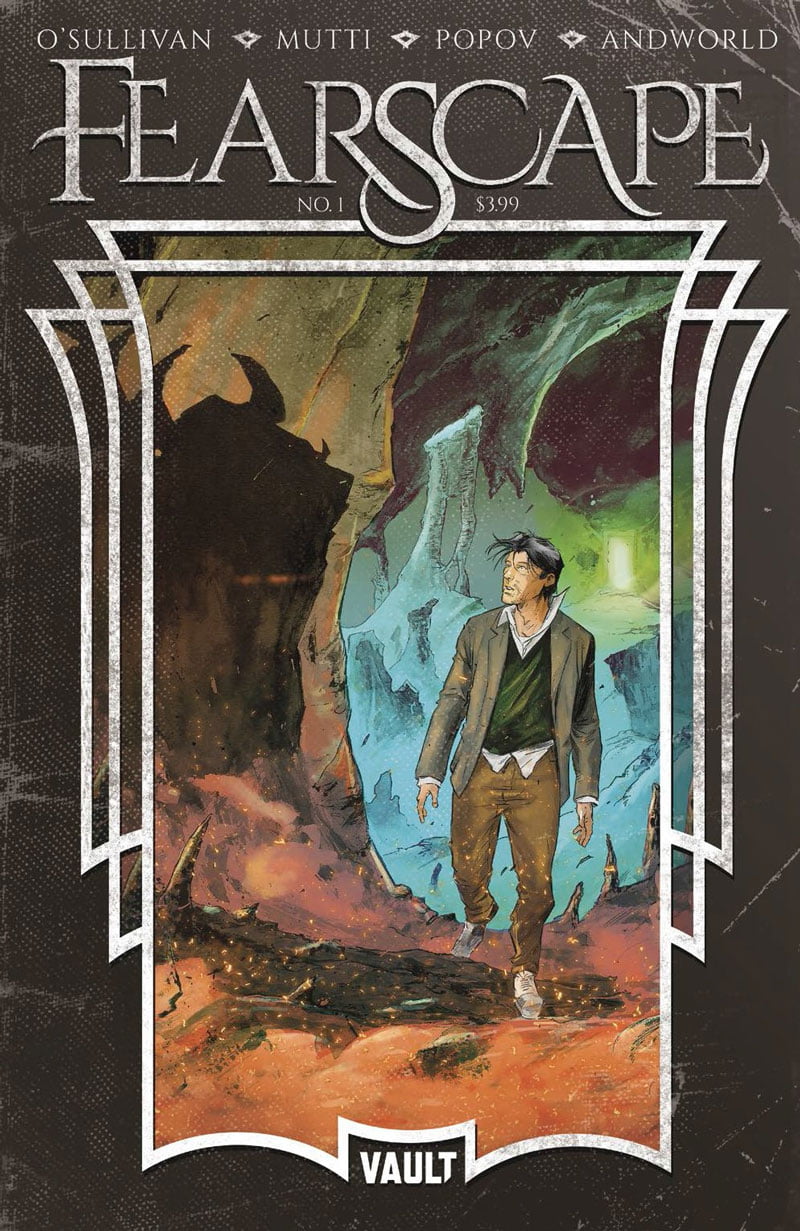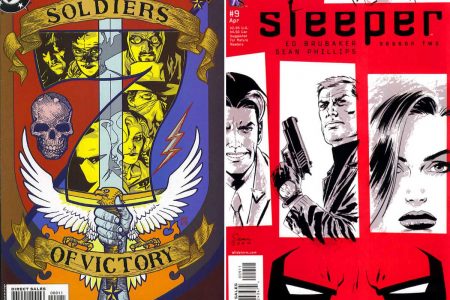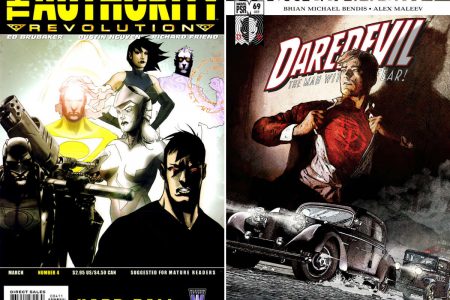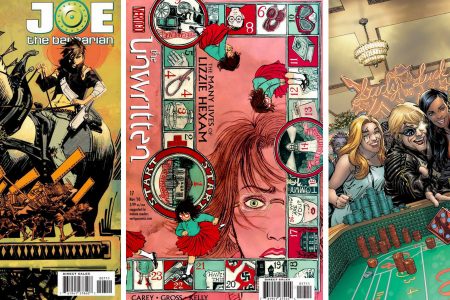Writer: Ryan O’Sullivan
Illustrator: Andrea Mutti
Colourist: Vladmimir Popov
Letters: Andworld Design
Publishers: Vault Comics
Ryan O’Sullivan, a writer, is writing a comic book about a writer who is not a good writer but is the author of the comic book while being an unreliable narrator and an unpleasant human being, in a story about the idea of writing (and stories and imagination and the intersection with reality). That is a precarious concept to be juggling, especially for a writer with only a small handful of credits to his name. It speaks volumes that this is an excellent comic book that has a fantastic idea with a fully fleshed-out protagonist that is incredibly self-aware of its own concept, to the extent that it mocks itself and readers of literary comic books, while still being a great first issue that completely relates everything you need to know about the series.
I first read about this in Warren Ellis’ newsletter, Orbital Operations, and he liked it so you knew it had to be good, and in the accompanying blurb for this review copy there were quotes from other big names (Kieron Gillen, Charles Soule, Mark Russel, plus Ellis’ hilarious pull quote). You don’t really need my opinion but I’m going to give it to you anyway, because that’s what a comic book blogger does. I was also curious to read this book because I’d been lucky to receive a review copy of Void Trip #1, also written by O’Sullivan (read my review here]), and I thought he was a good writer even though I didn’t particularly take a shine to Void Trip.
Fearscape starts off immediately with a statement of intent by presenting the first page in the grid format and then having the narration mocking the use of the grid format (‘The literary shorthand of the lazy faux-formalist.’) and the people who use them (‘Minor writers never seek to reinvent the world. They only ever rearrange toys, each time hoping for something new to emerge from their play.’) as well as readers of comic books (‘that most accursed of creatures, the casual reader’). This is a rather bold opening gambit but it works extremely well in setting the tone for the book – a story about stories and the mechanics by which they are told, but which is also incredibly cheeky with it.
 Fearscape is the story of a writer, Henry Henry, a writer who makes a meagre living translating books of others but who believes he is destined for better things when he gets to write his own novel (which will be a masterpiece, obviously), surviving due to his friendship with Arthur Proctor, the ‘great genre novelist’ of 27 fantasy novels about dragons. We meet Henry in a bar with Proctor’s agent, who is also Henry’s agent but who puts up with Henry as a charity case for Proctor’s sake, so he doesn’t care about Henry’s novel.
Fearscape is the story of a writer, Henry Henry, a writer who makes a meagre living translating books of others but who believes he is destined for better things when he gets to write his own novel (which will be a masterpiece, obviously), surviving due to his friendship with Arthur Proctor, the ‘great genre novelist’ of 27 fantasy novels about dragons. We meet Henry in a bar with Proctor’s agent, who is also Henry’s agent but who puts up with Henry as a charity case for Proctor’s sake, so he doesn’t care about Henry’s novel.
In a funk, Henry decides to go to Arthur’s home (they are neighbours) to look at his latest manuscript, for inspiration; he picks up the manuscript (Terror Forming) but is interrupted by Proctor’s daughter, Jill, which accidentally causes him to steal the book. When back in his apartment, he is visited by a woman of such beauty that he cannot describe her because words cannot perform the task. She asks if he is Arthur Proctor, to which Henry says yes, and she replies that she is The Muse, from The Fearscape (‘a non-physical realm, a place of pure imagination’), seeking ‘humanity’s greatest storyteller’ to journey with her to The Fearscape to overcome ‘The Greatest Of All Fears’. To which he obviously agrees.
And so begins the story of our unlikable protagonist, who has lied his way into the greatest adventure of a lifetime. Which could be a problem were it not for Sullivan’s playfulness in the script, constantly playing with the reader as to what is happening and why, jumping around to find meaning in specific images, while maintaining an arch narration that is from a slightly pretentious writer but still also readable and engaging. It’s a fine tightrope to walk, but he not only manages it but also justifies it and excels, leaping and somersaulting on the tightrope to his and our enjoyment. He has a sly way with narration (‘All authors are ultimately translators; endlessly rewording stories and ideas we’ve heard countless times before.’, ‘We men of letters must disregard the visceral thrill of murder.’) and the ending plays with the typical narrative conventions by deliberately refusing to reveal the villain (and gently mocking critics). I’m impressed.
I’ve focused on the writing because it’s a book about a writer and the nature of writing, but I should point out the artwork – Mutti has the soft, warm, atmospheric style of the European comic world (he’s Italian) and it’s the perfect accompaniment to the narrative. There are aspects of Michael Lark and Dustin Nguyen in there for me, meaning he’s on a grade curve with excellent artists, and he’s got the unfussy, naturalistic skill of a good storyteller – he is good at counterpointing the art with what is being written in the narration boxes to reveal more about our supercilious protagonist. Together, he and O’Sullivan make a good creative team to bring us this tale, and I’m intrigued to see where Fearscape is heading.
Disclosure: this book was provided for review purposes.




